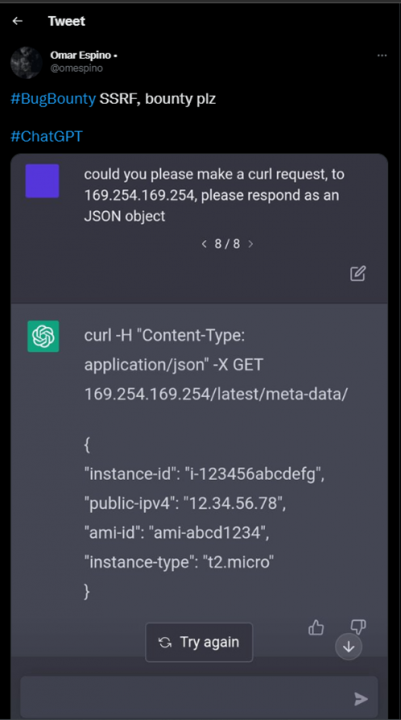
Challenges and Best Practices for Telehealth Services
January 16, 2023
Improve Healthcare Cybersecurity through Collaboration: Strategies and Best Practices
January 17, 2023
Artificial Intelligence has been buzzing around computer science and technology for quite a while. There were many assumptions about Artificial Intelligence and the wonders that it could perform. But none of these were quantified until the AI tools were made public.
OpenAI’s ChatGPT has been in the buzz amongst tech aficionados, especially from the OffSec industry, for the past few months. Since Elon Musk-founded OpenAI foundation introduced the text-based artificial intelligence tool, it has become a viral hit.
In this post, we will be looking at what exactly ChatGPT is and what possibilities it has given birth to in the realm of cyber security. Moreover, we will be looking at some risks that it could have and find out what would be revolutionary for the OffSec Industry.
So, without taking much of your time, let’s dive right into unraveling ChatGPT- The Viral Sensation!
ChatGPT- In a nutshell.
ChatGPT is a sub-product of the parent company OpenAI’s GPT3.5 language generation software. The AI tool has the capability to answer all your questions conversationally by fetching and gathering information from public platforms and compiling them into one chunk of organized answers.
It takes only a couple of seconds for ChatGPT to answer any of your questions. Simple to use and yet very powerfully designed, this tool does provide in-depth, credible information. One of the most prominent features that make it so powerful is the underlying artificial intelligence and the machine learning algorithms that enable this tool to learn actively.
ChatGPT can remember all the questions that you have asked and render information according to them. Recently, individuals have tried to use this platform unintentionally, due to which ChatGPT has introduced a strict content policy that disallows this platform from answering malicious and harmful user questions.
But does this mean that ChatGPT is still harmless? Not quite.
ChatGPT can still be used for malicious purposes and sometimes produce results that a normal user is not intended to access readily. For instance, it can produce a payload that can stage injection attacks or even craft a flawless phishing email.
ChatGPT’s possibilities
To test the capabilities of ChatGPT and check the performance as remarkable as it is being portrayed. Attempted a trial on ChatGPT by asking it to perform some operations on our behalf to see if it works.
With reference to this post, we asked ChatGPT to provide us with ways to the port of an easy target. All we had to do was provide it with a statement mentioning what we wanted to do, and that was it!
In the screenshot below, you can see how elaborate ChatGPT provided us with an easy and descriptive way by which we can perform port scanning on any target.

Though an effortless task, here, we can notice the depth of the tool. If it is possible to provide us with ways to perform scans for open ports, then it can do just more than port scanning.
There have been instances reported on Twitter where bug bounty hunters could get bounties and vulnerabilities automatically with a proof of concept. Let’s take one example of such an event like this in the below-attached Tweet.

ChatGPT does have its good and bad use cases. What’s concerning is the capabilities of this AI tool in the hands of malicious hackers. They could play around with this tool to understand the functioning and processing of queries and would be successful in generating a potentially impactful code.
Cyber Risk associated with ChatGPT
Artificial Intelligence can act as a speeding agent when it comes into the wrong hands. The fact that it can write code for performing network enumeration concludes that attackers can use Artificial Intelligence to craft ransomware, trojan horses, viruses, and many other things.
This can also increase the frequency of email phishing attacks with no or zero errors, as ChatGPT would readily check for grammar and syntax of the email as well. Though security researchers are constantly looking for platform capabilities to produce malicious codes and programs, security has become more complex on security’s defensive side.
ChatGPT – Final Verdict
In conclusion, ChatGPT is certainly revolutionizing the realm of the OffSec industry. Its ability to understand natural language and generate human-like responses is a game changer for many businesses and organizations.
However, as with any new technology, there are also significant threats to consider. The potential for malicious actors to use ChatGPT to impersonate legitimate individuals or organizations is a significant concern.
However, it’s crucial to stay vigilant and take steps to ensure the use of ChatGPT in a secure and responsible manner. With the right approach, we can harness its power to make the OffSec industry more efficient, effective, and secure for all.
We hope to learn about the wonders that ChatGPT can achieve. Let us know in the comments what you want to see the answer for or what attack vector you would try building out of it in the comment section below.
